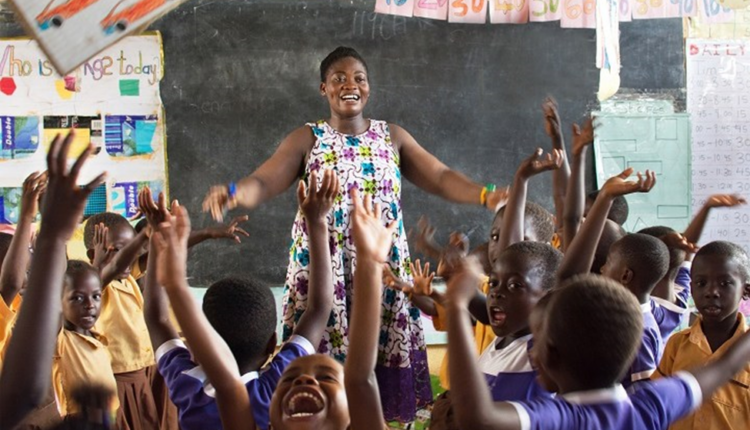“If we are to teach real peace in this world…we have to begin with the children” Mahatma Gandhi.
This quote captures the essence of the right-age enrollment campaign that was launched in 2023 by the Ghana Education Service (GES) with the support of the United Nations International Children’s Emergency Fund (UNICEF) in collaboration with other stakeholders. The campaign was intended to ensure that all children in Ghana are enrolled in school at the right age of four, as mandated by the education Act, Act 778 passed in 2008 by Ghana’s Parliament. The campaign also sought to address the challenges faced by children and parents in different districts, especially those in remote areas, where education is often neglected or undervalued.
The campaign in 2023-targeted five districts identified as having low rates of right-age enrollment: Nzema East, Offinso North, Mfantsiman, Juaben and Bono Wenchi. These districts have different socio-economic and cultural factors that influence the education of children. For instance, Nzema East and Mfantsiman are fishing communities, where parents prefer to take their children to the fishing grounds rather than to school. They believe that fishing is more lucrative and rewarding than education while Bono Wenchi is known for cashew picking, where children are encouraged to join the cashew picking business, which determines their income. Offinso North and Juaben are farming communities, where both parents and children find farming as a valuable source of income and livelihood.
To overcome these barriers, the campaign organizers adopted various strategies to reach out to the communities and persuade them to enroll their children in school at the right age. One of the strategies was to organize a community durbar, which involved the elites, the middle class and the grassroots. The durbar was a platform to educate the people about the importance and benefits of education, the legal implications of not enrolling their children at the right age, and the opportunities and support available for them. The campaign organizers also realized that the influential people in the communities were not the elites, but the non-elites, such as the lead fishermen, the market queen mothers, the farmers and opinion leaders. These influential people were used as the target audience to get the buy-in of the community. To earn their trust and respect, the campaign organizers dressed like them, spoke their local dialects and used their local materials.
Another strategy was to collaborate with the social welfare and health services to advise the people on the issues of children with special needs and the fact that they are not spirits (snakes, maami water) as religiously interpreted but also human beings who deserved to be educated like any other child. These children have severe disabilities that affect their physical and mental development, often stigmatized and neglected by their families and communities. The campaign organizers also educated the men to partake in the child grooming process so that the children would feel their inclusiveness. This also enabled the campaign organizers to find out that there was a slot for parents who have disabled children to get a token that could be used to support their children.
The campaign was a success, as it resulted in a significant increase in the number of students enrolled in school at the right age, including the physically challenged and children with special needs. The campaign also improved the awareness and attitude of communities towards education and the rights of children. Mrs. Hannah Adutwumwaa Owusu, an Early Childhood Programme Officer at the Ghana Education Service (GES) attributed the success to the effective communication, collaboration and community engagement employed.
The campaign is not over yet, she explained, as the GES plans to continue the campaign in 2024 and beyond, with the aim of achieving universal right-age enrollment in Ghana. The GES also plans to implement the Family and Community Engagement Guidelines, which are teased out of the early childhood policy. The guidelines are designed to foster a holistic and inclusive approach to the education of children, involving everyone, such as mothers, fathers, brothers, neighbors and others. The guidelines also emphasize the use of play-based pedagogies and digitalization as methods of educating the child, as they are proven to enhance the cognitive, social and emotional development of the child.
As we welcome a new year, we recognize the importance of stakeholder support in this area. The future of our nation rests on our children, who are the future leaders. Therefore, we need to strengthen the campaign for enrolling children at the right age, to ensure a better future for Ghana and to boost our development and growth. With the right support and guidance, every child can achieve their potential and contribute to the nation’s progress as captured by Nelson Mandela, “Education is the most powerful weapon which you can use to change the world.
BY: Mabel Delassie Awuku. Public Relations Unit – Ministry of Education


Comments are closed.